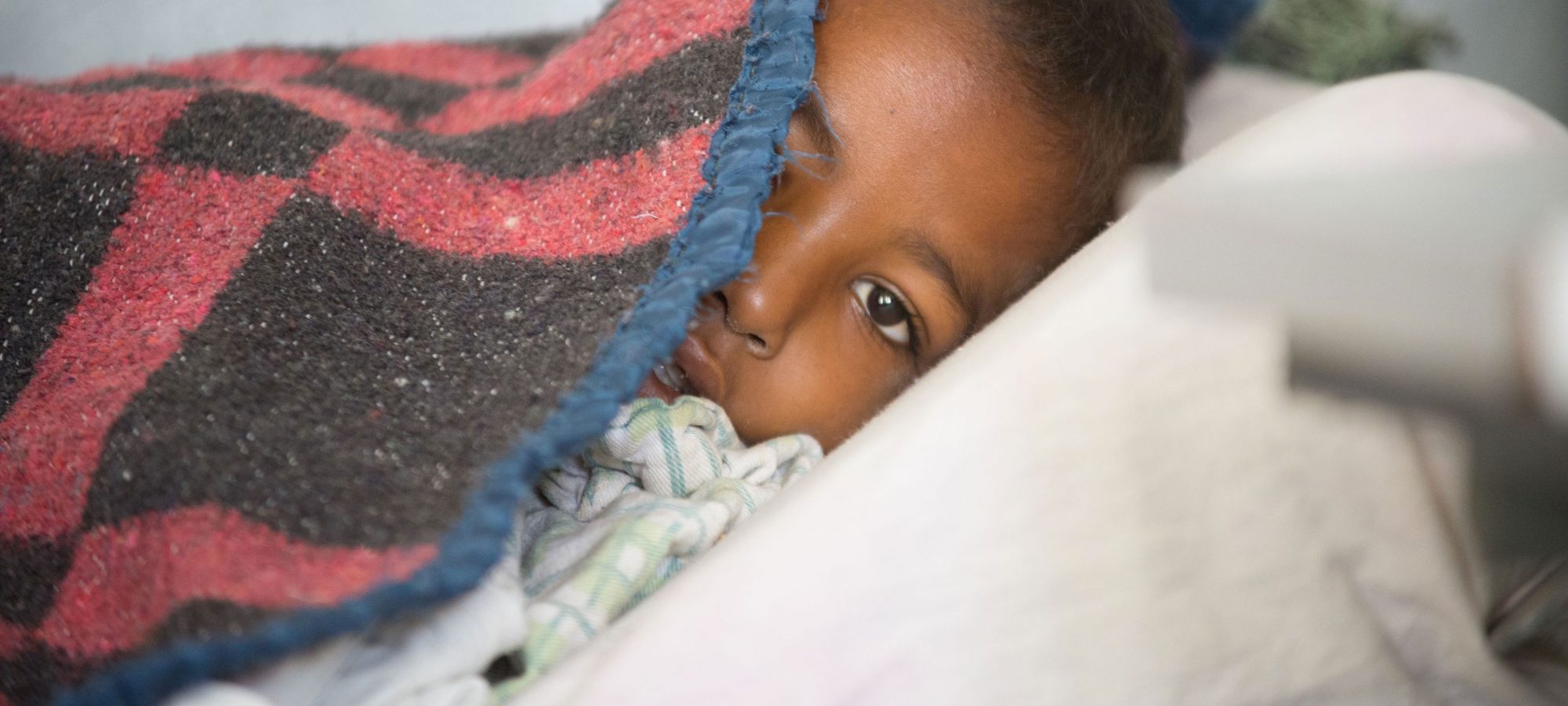A large scale long lasting insecticide-treated net (LLIN) campaign was officially launched by President Filipe Jacinto Nyusi in November last year in an effort to reduce malaria in Mozambique. Many Mozambicans are still falling ill or dying of malaria. In 2014 alone, over five million cases of the disease were diagnosed, leading to over 3000 deaths.
The mass LLIN distribution campaign, supported by Malaria Consortium, is providing over 13 million nets across the country, with the first stage distribution taking place in Nampula and Niassa provinces. We spoke with some of the people involved in the first stage of the distribution to find out how the programme was being received by local communities.
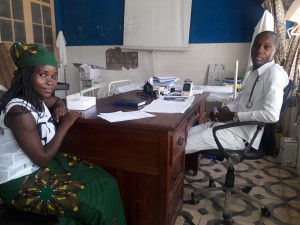 Azélio Fulede, Chief Medical Officer
Azélio Fulede, Chief Medical Officer
“The health situation in our district was critical because communities didn’t know how to use mosquito nets. Now, through social mobilisation activities run by community leaders, activists, volunteers, and community radio we are seeing behaviour change and the nets are being used properly.
In our regular visits to the communities, we see that families now hang the nets over their beds, on the porch or wherever they sleep. When we meet people who do not know how to hang the nets, we show them and help them. These are encouraging changes; fewer people are getting malaria and positive messages continue to spread within communities. We hope that fewer people will fall ill and that we will eventually eliminate the disease.”
Emília Corela, c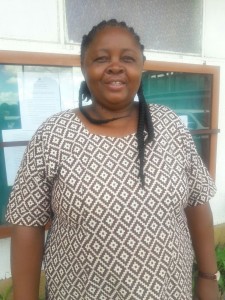 ampaign supervisor
ampaign supervisor
“I can already see changes in peoples’ behaviour. Everywhere you go you can see mosquito nets being aired in the shade, hanging on the balconies and in bedrooms. These are new scenes, really – you would not have seen this before. I believe that the efforts we made to educate the population about the importance of using nets to protect themselves and their families against malaria, such as advocacy events, lectures in schools, information sessions at community level, are beginning to bear fruit.
On a personal level my involvement in this undertaking has been very rewarding. I gained work experience, lost my shyness, learned more about interacting with people and meeting new people; these skills will also help improve my work.”
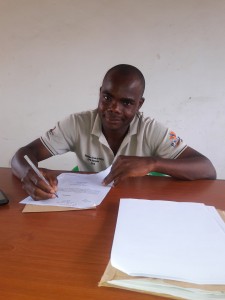 Naré Luis, focal point for malaria in the Eráti district
Naré Luis, focal point for malaria in the Eráti district
“This LLIN distribution campaign was a major challenge for us because it was the first time we covered the entire district, providing nets to over 95 percent of the population.
Malaria is a major health problem in the Eráti district, affecting as many as 60 percent of our people. However through this campaign we are already seeing that there is less malaria. We are now working together with the community health workers, local leaders and radios stations to ensure people know how to use and keep the nets in good condition.”
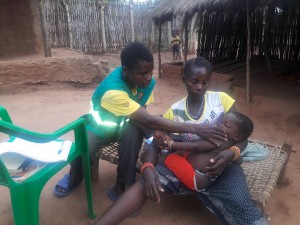 Francisco Eduardo, volunteer community health worker in Mucuegera
Francisco Eduardo, volunteer community health worker in Mucuegera
“Eighty percent of my work is devoted to community health promotion activities, including village health talks to ensure our community understands how to prevent diseases such as cholera, diarrhoea and malaria. The other 20 percent of my time I provide treatment services at either my patients’ homes or my own home.
The net distribution has been an excellent opportunity to show people the correct use of a mosquito net. I notice the difference in my daily home visits. People are hanging the nets and sleeping under them and I have already seen that malaria is reducing! Last year during the rainy season I diagnosed more than 100 malaria cases in only one month, but this year I recorded only 39.
 Marcelino Joao, Chief Medical Officer, Nacala Porto district
Marcelino Joao, Chief Medical Officer, Nacala Porto district
“Investing in mosquito nets is a guarantee for a long life! Before the distribution campaign, people often used nets for fishing and not for sleeping under. Malaria Consortium trained people from civil society associations and community structures, as well as community health workers, to help mobilise these communities, raise awareness and change behaviour in relation to malaria prevention and the appropriate use and care of mosquito nets. These messages have been reinforced by local radio and television channels which broadcasted the messages intensively during the campaign.
Through these efforts, we have already recorded a decrease in cases of malaria. We are very satisfied with the results and we believe quality of life will improve in the district. We will continue to hold regular meetings with local community leaders and to spread correct information about malaria prevention and the appropriate use of mosquito nets.”
 Marcelino de Melo, Provincial Health Directorate of Nampula province
Marcelino de Melo, Provincial Health Directorate of Nampula province
“For the first time we have managed to distribute LLINs to all districts in the province – reaching a total of 1.3 million families with over 3.5 million mosquito nets. We are now focused on strengthening communication via radio, television, posters and leaflets so that people make good use of the nets we distributed.”
LLIN distributions are a key component in the Malaria Prevention and Control project, a country-wide initiative funded by the Global Fund to Fight AIDS, Tuberculosis and Malaria, and implemented by World Vision as primary partner, Malaria Consortium, Food for the Hungry (FH) and Foundation for Community Development (FDC).
By Dorca Nhaca, Malaria Consortium, Nampula office, Mozambique
